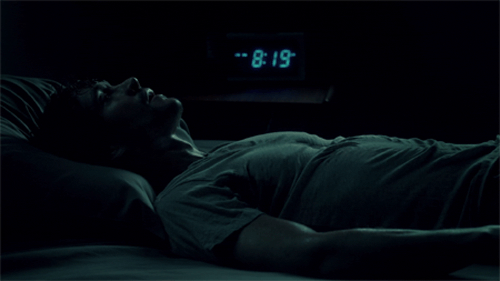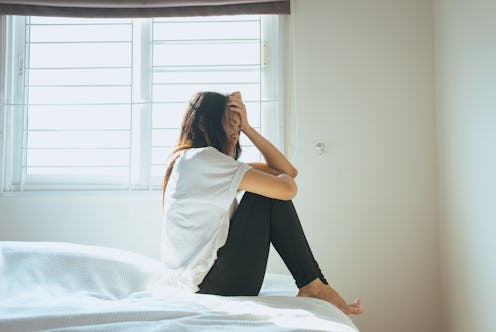Life
This Is The Surprising Reason We Have Bad Dreams
We've all woken up after a nightmare featuring a pair of lost glasses, a failed test, and a panty-stealing monster (right? Please tell me I'm not the only one) and wondered why we have bad dreams at all. They're needlessly terrifying, they interrupt your sleep, and they can ruin your entire day if you have one right before you wake up. Plus, they tend to make you all sweaty, which is just gross. So what gives? What's the point of nightmares?
Researchers have been trying to answer this question for decades, and they've come up with a variety of theories over the years. According to Fox News, some believe that bad dreams are actually the default setting, while others claim they're merely an extension of the brain's attempt to find meaning in random signals during REM sleep. New York Magazine's animated video series The Science of Us, however, offers another explanation in its latest episode, "The Science of Bad Dreams."
According to the video, bad dreams could actually have a positive effect on your mental health, even though it may not feel like it at the time. Research shows that the anxieties that plague us while we're awake follow us into our dreams as well, which you've probably experienced for yourself in the form of that dream about showing up naked to a family reunion last week.

Your brain takes these anxieties and remembers them as things that actually happened. Researchers hypothesize this is because memories are easier to process than vague fears; the brain sees the nightmare as an event from the past rather than something to worry about in the future. This allows you to gain distance from your fears, which ultimately helps you get over them.
So although you might not be a fan of that recurring dream about the Ravenstag (thanks, Hannibal ), in the end, it's for the best no matter how scary it is at the time.
Check out the video below:
Images: Fotolia; nbchannibal/Tumblr; Giphy
